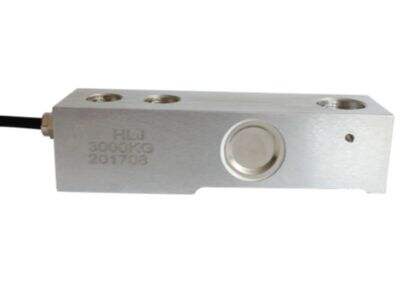皆さん、こんにちは! 動画内の質問:重いものはどうやって量りますか?標準作業手順(SOP)です。 テンションロードセル は、トン単位の物体を秤量する際に非常に高い精度を実現するための重要なツールです。それはまるで、特別な秤を持っているようなものです。その秤は「えーと、これくらい?」とは言いません。今日はテンションロードセルの仕組み、その適用場面、そしてその重要性について説明します。それでは始めましょう!
テンションロードセルの仕組み
これは、重い物品の重量を知るため、その底部に取り付ける小さな装置で、テンションロードセルと呼ばれます。何か重いものをロードセルに載せると、それが受ける圧力や引っ張りを、画面上でデータとして見ることができる電気信号に変換します。それは、ストレインゲージと呼ばれる非常に小さなワイヤーが取り付けられた強力な金属で構成されています。これらのストレインゲージは非常に特殊で、引っ張られたり圧縮されたりすると少し変形することができます。これらの変化を特定の電気回路に伝えることで、ロードセルを使ってそれを測定することができます。
センサー重量測定: テンションロードセル
テンションロードセルは、フックやケーブルで何かを吊るしてその重さを測定するために使用されます。物体が下がっているときに、その物体に対する重力の引きが検出されます。重力とは、地球に向かって物を引きつける力であり、それがどれだけ重いかを知らせるものです。この引きは電気信号に変換され、ディスプレイやコンピュータに送られて重量が表示されます。では、これがテンションロードセルを使用して物体の重量を測定する正しい方法なのでしょうか? その仕組みが驚くほど素晴らしいと思いませんか!
ストレインゲージとは何ですか? ストレインゲージの動作原理について詳しく説明します。テンションロードセルは、ストレインゲージに関して非常に小さな部分です。これは、引き伸ばされるか圧縮される量に応じて抵抗が変わる非常に小さな電気部品です。抵抗とは、電気が何かを通るのにどのくらい難しいかを示す尺度です。重量がSOPの金属部分に押しつけられることで... テンションロード セルで、ひずみゲージがそれに応じて変化します。ウィートストンブリッジはこの変化を測定するための特別な回路です。
この回路により、ひずみゲージの出力を扱える電気信号に変換し、物品がどれだけ重いかを判断できます。
なぜキャリブレーションが必要なのか キャリブレーションとは、測定ツールが正確であるかどうかを確認することです。テンションロードセルは精度を保つために定期的にキャリブレーションを行う必要があります。つまり、正しい重量が出力されるかを確認するために定期的にテストする必要があります。キャリブレーションには、例えば砂糖の袋やダンベルなどの既知の重量をロードセルに載せて、どの信号が出力されるか記録します。もし信号が予想値と異なる場合、出力信号が期待値と一致するまでテンションロードセルを調整します。
これにより、ロードセルの表示を信頼できるように正確さが保たれます。
高性能合金鋼製テンションロードセル テンションロードセルは、私たちの周りで広く使用されています。工場、倉庫、出荷拠点で巨大な物品を計量するのに役立ちます。例えば、荷物を取りに来る大型トラックでは、積載重量を測定する必要があります。建設分野では、建物や橋梁の耐荷重を決定し、安全性を確保するために使用されます。また、自動車テストでもドアやブレーキなどの部品を動かすために必要な力の測定に使われます。
医療機器、飛行機からスポーツ用品まで、さまざまなアプリケーションで使用されており、私たちの生活で非常に有用です。
テンションロードセル - 利点 テンションロードセルを使用することでいくつかの利点があります。それらは非常に正確であり、常に正しい重量を示してくれます。使用方法も簡単なので、誰でも扱うことができます。重い物体、例えばトン級のもの(ミニバンのようなもの!)を計測できるスケールが含まれています。そのコンパクトさと持ち運びやすさにより、さまざまな場所に便利に配置できます。
また、堅牢で長寿命であるため、多くの作業に信頼して使用できます。最後に、テンションロードセルは、ものを正確に計量するための重要なツールです。彼らは応力ゲージを通じて引っ張りの変化を電気信号に変換し、それがどれほど重いかを教えてくれます。校正の方法を知ることは、その精度を確保し、表示値を信頼できるようにするために重要な部分です。SOP ロープテンションロードセル さまざまな産業で使用され、私たちに精度、信頼性、使いやすさを提供してくれます。そして、新しい何かを見つけられたことを願っています!これらのツールが異なる方法で私たちを助けてくれることは本当に素晴らしいことです!

